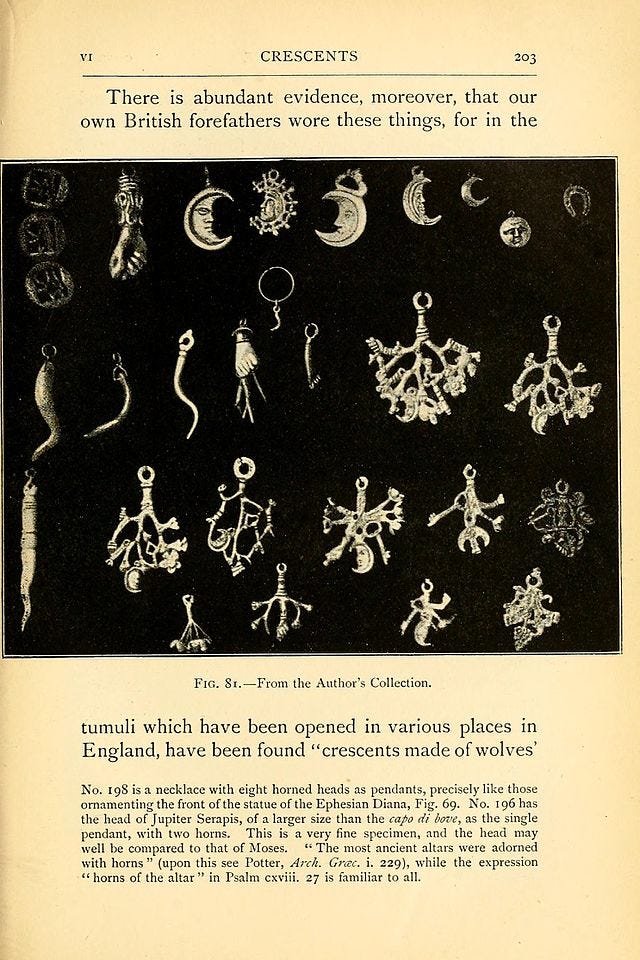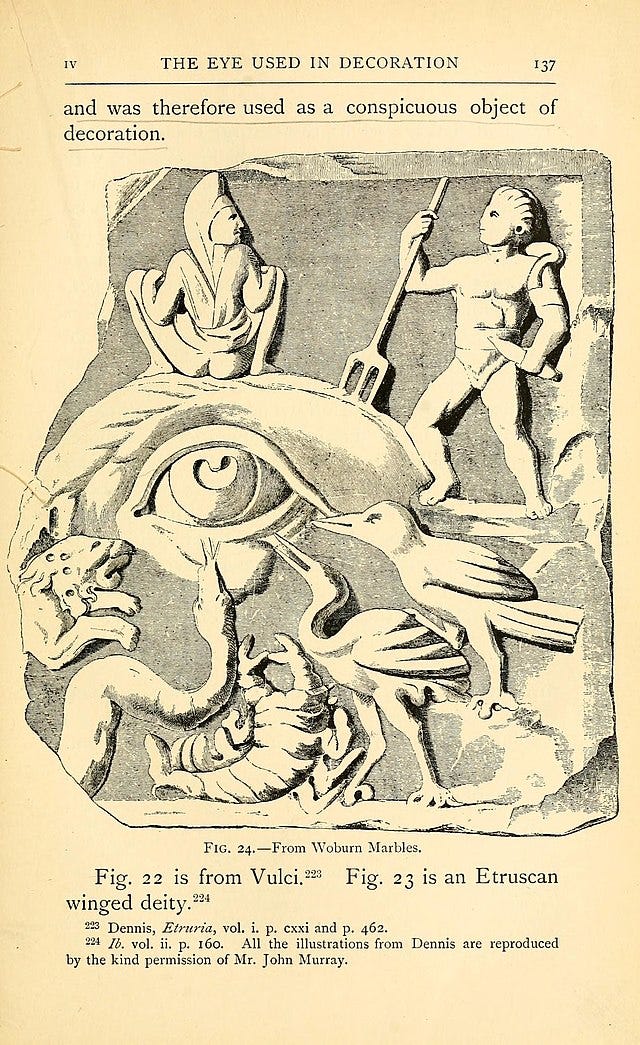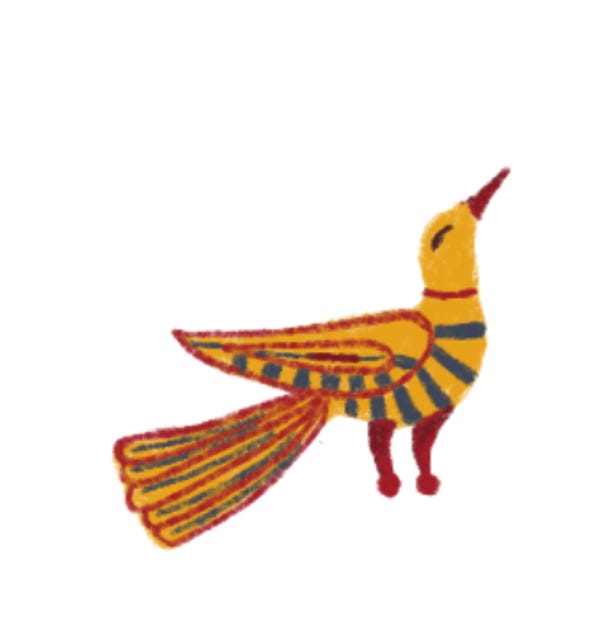As a freelance historian, I have decided to keep my newsletter subscriptions free in order to share my writing with whoever has an interest for the research and reflections in these posts. If you’ve been following along and have enjoyed my work, liking the posts by clicking the heart at the bottom of the page is easy way to support it. If you would like to support my work further, you can “buy me a coffee” (it’s like giving a tip) or share Crivello with a friend! Thank you for following, commenting, sharing your stories, and even simply continuing to open these emails week after week.
I’m quite susceptible - as many of us are - to imposter syndrome; to high highs and low lows; to feeling a little lost, at the very least, and, in moments when self-criticism is on overdrive, to convincing myself that I have nothing useful or good to bring into the world. After getting very sick last week, the mental and physical collided and the slump has inevitably hit. In these moments, writing is hard, reading is easier. Doing nothing is easiest. I reach this point every so often where I need to remind myself of some important self truths.
And so, today, I am looking back at something I wrote for a presentation in 2018, based on research I did two years prior for my first oral history project as an undergrad. I had no clue what I was doing or even how to properly conduct an oral history interview. In fact, prior to 2018, I never had any formal training. But I had an idea and I wanted to hear people’s stories. Though the research was really interesting, and even culminated in my first published piece in an academic edited volume (!!!!!!), it was also overwhelming. Writing my first version of the paper, submitted for my undergrad class, was a monstrous task that I barely got through.1
I learned a lot from this project. Not just on the subject, or oral history methodology, but also about myself. I’ll spare you - I’ve written about myself enough for today. But it’s the reminder I needed. Here is that text, slightly edited for this week’s Sunday Story.


On April 16, 2016, I walked into Anna Arcaro’s cluttered-but-clean - in the way it seems only a certain generation of Italian ladies can manage - basement, excited to interview someone who had been practicing mal’occhio for decades. In English, you may know it as the evil eye. And it's some kind of affliction, oftentimes a headache, which is given to someone, usually unintentionally, through another person’s envious thoughts or words. An unintentional mal’occhio could be avoided by simply uttering “God bless you” after compliments or praise, as that would show that your words are coming from a positive place. Unless, of course, you want to give someone mal’occhio on purpose. As someone else I interviewed explained, jokingly, “a person is either talking too good about you behind your back, or is talking really bad about you behind your back. So basically whenever a person talks about you, there’s 90% chance that you’re going to get the mal’occhio.”
These interviews were part of a larger project I completed in 2016 to study the evolution of mal’occhio healing in local, contemporary Italian Canadian communities. I interviewed 5 healers, two third-generation Italian Canadians, two second-generation, and Anna Arcaro, a first-generation Italo-Canadian healer. All five of them were part of my navigation through personal networks. Within these networks, I was able to move through an ambiguous space: that of trying to understand mal’occhio, what it means and how it works… and how this changes depending on who explains or practices it.
This post will focus on just one of those interviews. Actually, the shortest interview. And it's about that conversation. It’s about Anna’s healing practice, but mostly about dealing with these shared stories through oral history as they are told in the present -- in bits and pieces, as interruptions, through laughter, and, of course, as soon as you stop recording. It’s also about the more solitary process, after the interview, figuring out how to use this information, especially when you are embedded in their networks and stories. What was my place at that table? Who was I in that moment? And how would that translate to the page?
Digging Deeper
“Sii fermata mo’? Hai stutato quella cosa?”2 Anna asked as I finished up her interview, making sure my recording device was off before continuing. As I sat at the head of the table, listening to the stories she would not allow me to record, her husband brought out plates full of fruit and bowls of their homemade snacks. A copper napkin holder, embossed with two hands holding a cross, was facing me from the other end of the table while Anna recited old mal’occhio healing prayers. She could share these, she reassured us, because they were not the prayers she used. At 75, she was the oldest of my interviewees and has been practicing mal’occhio healing the longest.
Born in Cantalupo nel Sannio, Molise, Anna came to Montreal in March 1953. As my nonna’s cousin, I grew up knowing her as my mom’s go-to mal’occhio healer. Her interview was quite different from the others, as my nonna and mother decided to come along. When I sat down to interview Anna, at the table with us were her daughter, my mother, and my nonna, while Anna’s husband puttered around the kitchen, preparing the snacks for later. At first, my nonna and mother made it a point to face away from Anna and I, in an effort not to distract us. However, towards the end of the interview, any semblance of formality had completely broken down as they began sharing stories, and prompting Anna, who seemed quite hesitant to respond to my questions in detail.
I had high hopes for Anna’s interview. I figured she’s got a lifetime of stories to tell about malocchio. This is going to be juicy. Within five minutes, my heart sank. We weren’t on the same page and I didn’t know how to get us there. So this was dilemma number one. Dilemma number two: I used to get nervous when I needed to speak Italian in front of older Italian people (thankfully, I have grown out of this). I fumbled through the interview, trying to formulate my prompts, often turning to my nonna or mom for help getting my point across. Dilemma number three: interruptions. Whether it was Nicola, her husband, shouting at her from the kitchen, or my constant nervous laughter, I was starting to worry that most of my interview would be devoid of any kind of useful information. And, finally, as I wound down through my questions, and checked the time, I realized that we had only been talking for 11 minutes. Immediate disappointment set in: I didn't know what to do, I would only have 14, max 15 minutes of interview, this is not good enough. I failed. But, it’s in these moments, when you allow a small change in perspective about these dilemmas, that oral history really flourishes.
Cassandra: What is mal’occhio?
Anna: What is mal’occhio? Beh… I was taught because I always had headaches and one of my neighbours told me “Should I enchant the mal’occhio now?” and I told her “yes.” She did this enchantment, after ten minutes, I felt better. And then I put it in my head that I have to learn, too. So I asked this lady, I told her she had to teach me, and she said no. She told me, “I can’t now. On the 25th, on Christmas, at midnight, I can write it down for you and you have to learn it at midnight.” The 25th, Christmas. And I learnt it and I started doing it, too. (my translation from Italian)
She didn’t really answer my question. I had to ask again. This idea of what mal’occhio is kept coming up throughout the interview, where she would keep specifying: “this is how I learned, or what I learned, what I know…” Even though mal’occhio can only exist through its network of healers and believers, because you necessarily need a sender, recipient, and remover, it is also an individual experience. Mal’occhio is a deeply personal topic. When you talk about it, you talk about your friends, your family, your beliefs, your goodness. That’s how Anna, her daughter, my mom - Elisa-, and my nonna - Lucia-, talked about it.
"And, you know, who believes, who doesn’t believe, because who am I to remove mal’occhio? Why doesn’t God remove it? But maybe with those words, it helps… I don’t know. There are people who tell me: “but who are you to remove it? God doesn’t remove it, and you do?” But maybe, by saying those words, it ends up removing the headache."
Anna didn’t feel like she had a power, or that she could perform magic. To her, mal’occhio healing was simply using prayers, naming saints. And, actually, it’s about generosity: people call you with their aches and pains, and you need to take that time out of your day to sit, focus, and help them. So why would it be bad? There’s good and evil in this world, Anna explained, but what she does, the way she does it, is good. She started sharing stories of people who changed their minds - they didn’t believe in mal’occhio, but now they call her to help their babies. The question of whether I believe or not was floated around. Antoinette, her daughter, chimed in: “She does it to me all the time, I believe in it. Before no, before I would... sometimes, I would have a headache, I would take Tylenol and it was still my headache and I would call her. So I didn’t know if it was the Tylenol and her, I didn’t know which one, whatever. Now, I don’t take Tylenol anymore. When I have a headache, I call her first.”
But it goes beyond that, too. The two key elements of storytelling are the listener and the teller -- we are both, and sometimes neither. I experienced that at Anna's table. Everything was a shared story, between the six of us. And I don’t just mean it in the teller-listener sense. I mean it in the familial sense. This was our history. “Characters” came in and out of the stories - my nonno, zia Netta - people who I knew, who needed no explanation, who Anna had healed time and time again. Although zia Netta is a particular story:
Lucia: Once, zia Netta came from Italy and her head really, really, really hurt. I told her: “Zia Netta, maybe you have… do you think you have mal’occhio?”
“Oh, you stupid girl, where did you get this idea?! Where did you hear about mal’occhio?” So, I called her [Anna] without saying anything, without telling zia Netta anything. Eh, after 10, 15 minutes, half-an-hour, she started feeling better. And after, I asked her: “Zia Netta, zia Netta, how’s your head?” I told her: “Zia Netta, how’s your head? Does it hurt? (my translation from Italian)
“Mah, it’s going away. It doesn’t hurt anymore.”
Cassandra: Did you tell her?
Lucia: It is true. Ya, after I told her. She said, “you stupid.”
Zia Netta didn’t believe it, but Anna healed her anyway, much to her dismay. There was a contradiction here: everyone said that in order for it to work, you have to believe. What to make of these sneaky triumphs of their healing abilities over the non-believer then?
Another playful moment between my nonna and Nicola is similar. Let’s get it straight, mal’occhio isn’t fun. It’s not something you want to have. But, by suggesting that he doesn’t get it anymore because he’s old, my nonna was joking that there’s no way anyone would be envious enough of him to give him mal’occhio. Pride hurt, Nicola simply responded: lu fanno, lu fanno. They do it, they do it.
Where do I fit in all this? I’m not a healer, and I don’t get healed very often, but here I was, at this table, the “expert”... listening to family stories? And I have to say that, once we reached this point in the interview, I was just Cassandra. Not a student, not a researcher, definitely not the person leading the interview. I was Cassandra, Lucia’s granddaughter, Elisa’s daughter, Anna’s family. And only when I surrendered to this, and took my place as the youngest family member at that table, did the stories come forward.
Have you ever interviewed a family member before? What did you learn?
Where on the spectrum of skeptical to believer do you fall regarding mal’occhio? Why?
What helps you when you are feeling lost or unsure of yourself/your work?
If you liked this post, you might also like:
Sunday Story #7
Last night, my boyfriend and I listened to a recording of Tommie dePaola reading his children’s book, Strega Nona. It’s a book that many Italian-American and Italian-Canadian kids had - or still have - on their shelves today. It tells the story of an elderly woman living in a small town in Calabria. The villagers called her strega nonna (spelled nona in the book) - or grandma witch - as she was known for her magic touch.
And this documentary by Agata De Santis.
Cass
I honestly think I had mal’occhio writing the paper.
"Are you done now? Did you shut that thing off?”







